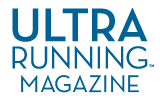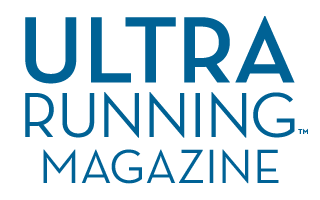Leaving my house for my first long run in two months, I feel ambivalent about going 25 miles. Part of me senses I’ll cut it short at 20, because isn’t that enough? No, I need to log a solid five-hour run. But why?
Recently, I’ve been pondering the “why” of ultrarunning more than the “how.” After all these years – 13 since my first 50k, 25 since my first marathon – I know how to run up to 100 miles at a time, but I still struggle to explain to myself and others why I do it.
My plan goes like this: run seven miles to town, mostly downhill, while listening to an audiobook. Then I’ll meet a friend who’ll run with me for an hour on flatter terrain for the next five or six. Next, I’ll hit two big, steep, snow-covered mountainsides for vertical gain in challenging conditions. Finally, an uphill road will take me back home for about 25 miles total.
It seems manageable, but running only an hour sounds awfully nice by comparison.
I leave dressed in layers, as the traction devices on my shoes make a pleasant crunch in glittering, hard-packed snow. My husband stays behind, a full day with deadlines and calls on his calendar. I experience a familiar twinge of guilt that I’m not being more productive or earning more income. Long ago, I shelved my career aspirations in favor of part-time work so I could devote myself to being a mother and a runner. This is another reason I started running ultras: to feel a sense of athletic accomplishment that has been harder to come by professionally.
Ultimately, however, I wouldn’t want to trade places; I’d much rather head out on a half-day excursion. The reminder that I get to do this adds energy to my stride.
The rhythm of my foot strike in sync with my breathing, the snowy mountains under a blue sky and a mesmerizing story streaming through my earbuds all combine to lull me into a trance-like state. Later, I’ll engage in deeper thinking, but for now, I let myself space out. This is another minor (but not insignificant) reason I run: to not think about things, such as the news or personal conflicts that spark anxiety, but rather, to escape.
I meet my friend, and within a quarter mile, our conversation begins to flow. As she opens up about major life decisions, it occurs to me that running lubricates conversation and intimacy almost like alcohol, and this also is why I run: to develop relationships and feel the warm buzz of friendship. While I appreciate the quiet solitude of running solo, I yearn to connect.
Our time together flies. After we part ways, I feel as if I’m a leaky tire losing momentum. I ingest some sugar and get to a trailhead. Ascending several hundred feet while hiking slippery snow, my breathing becomes increasingly labored even though my pace progressively slows.
I marvel at how curtains of runoff have frozen into blue-toned icicles suspended from reddish rocks. The beauty of this seasonal formation is so unique and evanescent that it makes me feel special to have witnessed it. That’s partly why I go up an isolated trail like this: to immerse myself in the mysterious, natural world.
After two big climbs and descents, I’m beat. At mile 19, when I shuffle into a mini-mart for a small bag of potato chips, I pause my watch and sit for a bit in the comfort of the warm market. I really feel done. If I call my husband, he’ll come pick me up.
Then I think about the upcoming ultras on my calendar: a 12-hour, a 50K, a 50-miler, a 155-mile stage race and then the big 100. I picture the destinations and some old friends I’ll see there. I flash on my time goals as the dormant competitor stirs in my chest. How well can I do in my new age group?
It hits me then, this huge reason why I run long distances: to earn the ability to compete in an ultra — a special day’s event full of camaraderie, challenge and celebration where life’s complexities and responsibilities boil down to the singular task of getting from point A to B. The ultra itself is an incentive and a reward as much as it is a challenge. It’s my twisted version of a vacation or a retreat. The bigger challenge is putting in the time and logging the miles to prepare for it.
If I’m going to do respectably well in those upcoming races, then I need to practice leaving the comfort of an aid station and getting back on the trail. I need to exit this mini-mart and finish the fifth hour. I know from experience that the magic and value of a long training run happens in the final hour when you confront fatigue and negativity, and keep going anyway.
Slowly yet determined, I run the final six miles uphill toward home. It’s not only the anticipation of being done that lifts my mood; it’s the satisfaction that I will finish what I set out to do. My legs start turning with greater fluidity.
This is what I do and who I am, I muse as I run. All of us dedicated runners initially experience some process of transformation, because running profoundly affects health and mental well-being. But at a certain point, the transformation ceases, and the person becomes a runner through and through, year after year. Action becomes identity and routine. This has become the meaningful yet simple answer to the “why” of training and racing: because I’m an ultrarunner.



